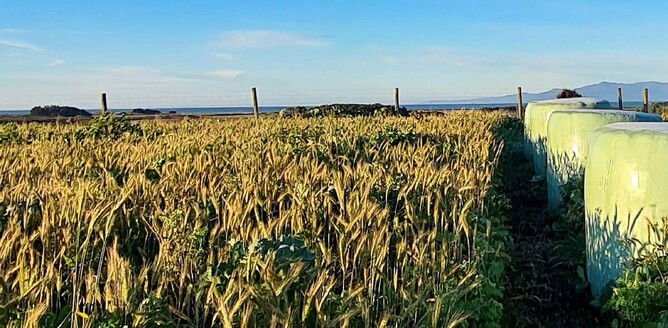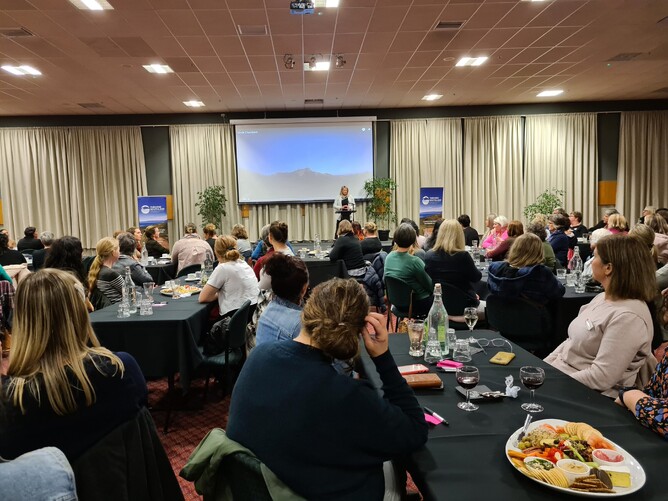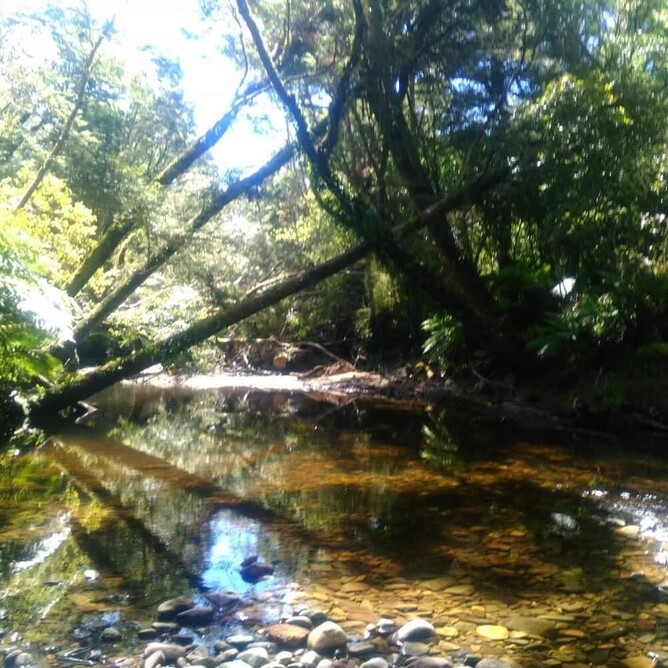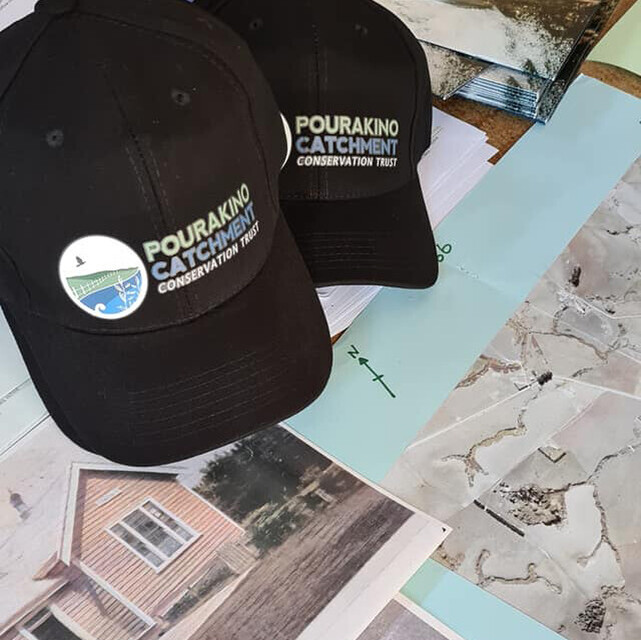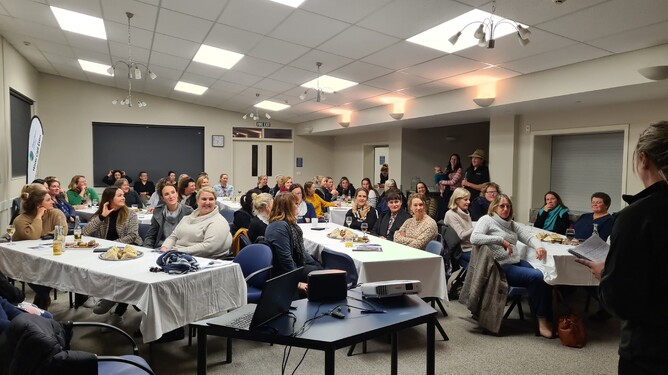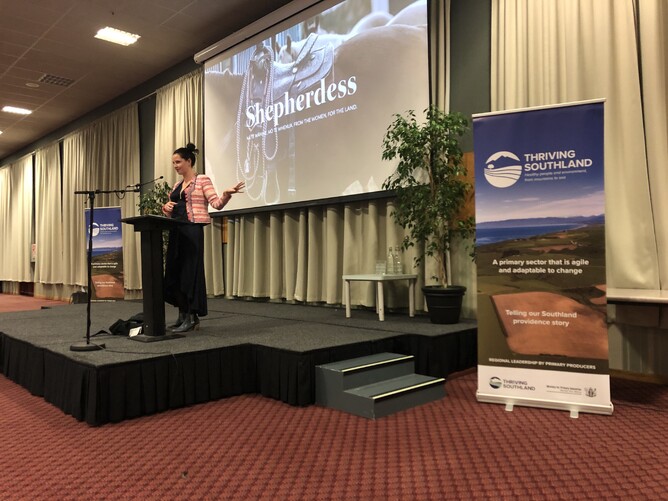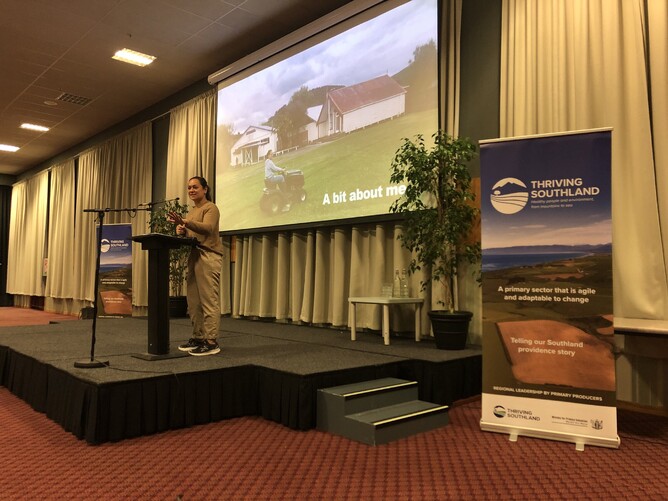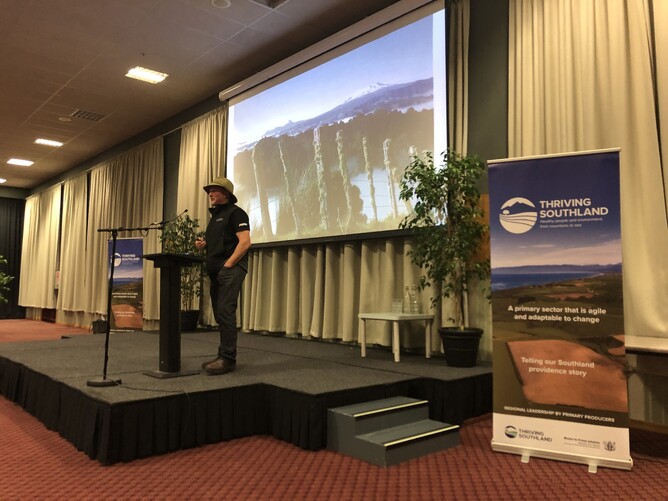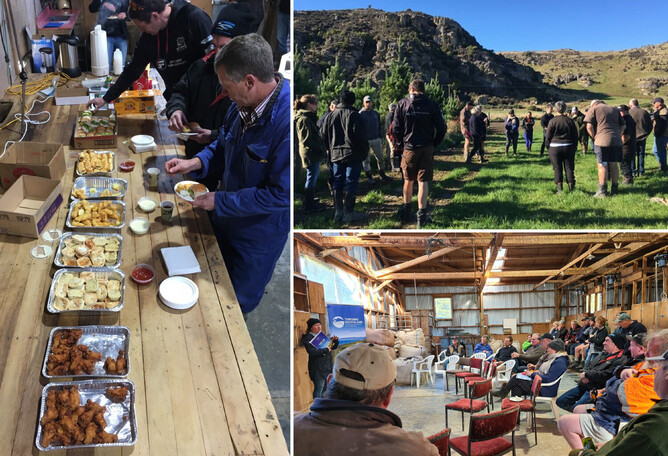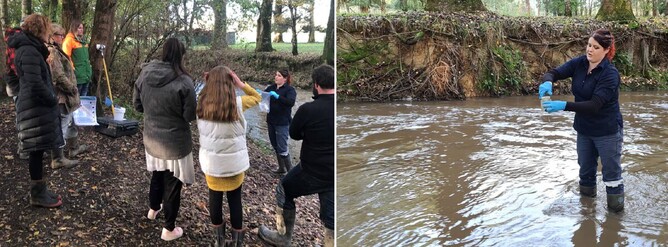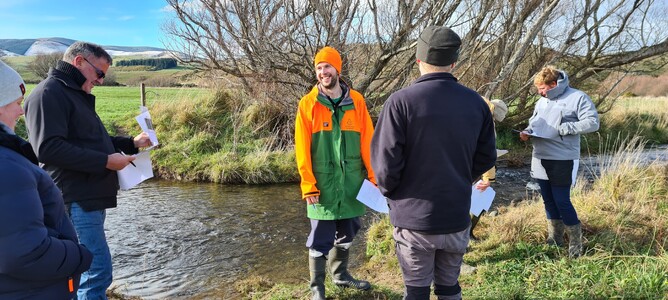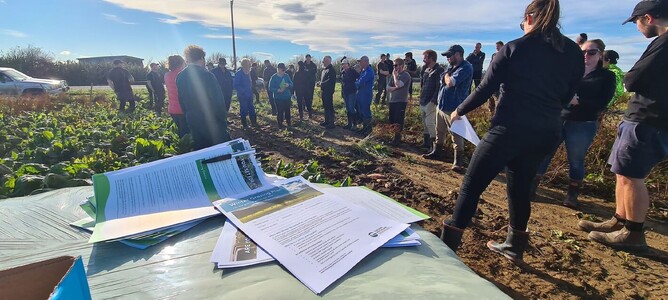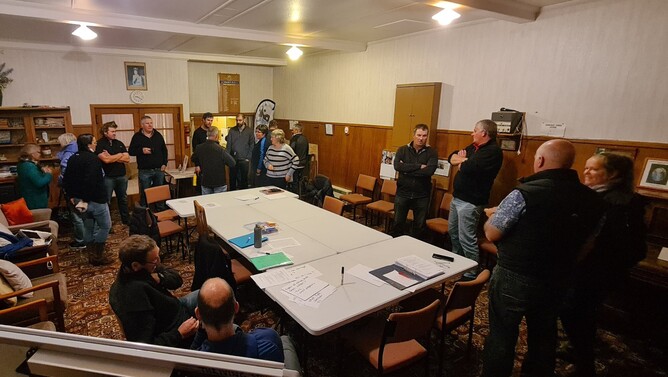Hello and welcome to our June newsletter!
‘Lead or be led’ was one of the strong themes to come out of the Women’s Enviro Series events held in May - it’s something that can be applied to lots of things in our lives.
The Thriving Southland team were thrilled to have more than 270 people attend the free evening events in Invercargill and Clinton. The speakers were thought-provoking and inspiring. Read more about it below.
Autumn has come and gone and we’ve had mostly blue skies with a couple of early frosts here in the south - and we hope everyone is coping with the rain coming down in the past couple of days.
With dairy farmers drying cows off and moving stock to grazing paddocks this month, having a good plan in place is essential. Thriving Southland has developed a winter grazing plan that’s free to download from our website.
We’re encouraging people to jot down their plans, so they have a tangible document to share with staff and anyone else who might need to see it.
Winter grazing drop-in sessions held to date have also proved popular, with rural professionals on hand to answer any questions or look over plans. We’re working alongside Dairy NZ, Beef + Lamb NZ and Fonterra to facilitate these sessions.
It’s always good to keep in mind that winter grazing plans can also form part of wider farm environment plans.
Someone asked us recently, “all the people who want to be in a Catchment Group probably already are - so how do you engage those people who might be a bit reluctant or resistant?”
It’s an excellent question - and we reckon the answer is that joining a group is as much about the social connections as anything else.
Catchment Groups are cross-sector and non-judgemental in nature, which are some of their real strengths. Anybody can be involved - whether they see themselves as rural or urban.
Keep an eye out soon for some fantastic video content showcasing our Catchment Group communities, and some work around Southland’s cultural history that we think will help put some useful context around the world we find ourselves living in today.
And finally - remember to keep an eye on our Facebook page for the latest podcasts and radio interviews from the Muster, on Hokonui Radio.
Catchment Group Profile Pourakino Catchment Group
When was the Group started?
Formed in 2014, the Pourakino Catchment Conservation Trust came together after a few like-minded farmers decided to work together to preserve the native bush, rivers and streams surrounding their farms, and to enhance the wider catchment and estuary environments, while preserving their farming businesses. They are one of the oldest Catchment Groups in Southland and have 66 members.
How often do you meet, and where?
We have several Catchment Group meetings year, plus committee and public meetings.
What projects/events is the Group working on?
We have completed several projects, some examples are - catchment-wide pest management scoping and implementation and the use of Ravensdown LUCI and Ballance MitAgator modelling completed across multiple farms in the catchment.
Most recently, we hosted a stream walk in April as we are part of the Aparima Community Environment (ACE) Project.
One of our major achievements has been ensuring 85% of landholders in the Pourakino Catchment Group area have farm environment management plans.
We are currently researching and planning a project to look at the removal of crack willow in the Pourakino River, and are working with local land holders, Environment Southland and local businesses to scope the project.
We also hosted a field day at Oraka Aparima Runaka marae, talking about the nursery run by the marae and how the two groups can work together to grow and plant trees in the catchment.
We are creating a photo library of the river and streams within the catchment by GIS mapping catchment-wide. We are also using experts to develop a catchment plan, including involvement with the local iwi, fishermen, the community and the council.
We are tracking Lamprey numbers in the stream and tributaries through the use of pheromone traps that measure pheromone levels to give us an idea of numbers.
We are also working with the Cawthron Institute on a research project, part of the Our Land Our Water National Science Challenges, alongside three other Catchment Groups, one in Waitangi, one in Hawkes Bay and one in Marlborough. The aim of the project is to better support freshwater goals by looking at ways of working more collectively with all stakeholders.
What's the best way for people to contact you?
Contact Geoff Baldwin on 0273856308 and check out our Facebook page here.
Women's Enviro Series inspires 270 people in Invercargill and Clinton
Not letting fear stop us, being transparent in what we do, and leading change were among the themes speakers shared with more than 200 people who attended the Thriving Southland Women’s Enviro Series at the Invercargill Workingmen’s Club on 17 May.
An outstanding line-up of speakers including Publisher and Editor-in-Chief of Shepherdess Magazine Kristy McGregor, Contact Energy Head of Sustainability Kaapua Smith, and Blue Duck Station’s Dan Steele shared their stories.
They were introduced by MC for the evening, Sarah Perriam of Perriam Media, who also led the Q&A sessions after each speaker. About 65 people attended the second night of the event, in Clinton.
PHOTO: Clinton event
She encouraged the audience to take away one key action to change and inspire them in their own lives.
Kristy grew up in Australia and spoke about the relative lack of women’s events in rural areas. After moving to New Zealand in 2014, to live in the Horowhenua with her farmer partner Mike, she founded Shepherdess magazine in late 2019.
PHOTO: Kirsty McGregor
While it had been tricky launching the quarterly magazine as Covid-19 lockdowns came and went, not to mention giving birth to their second child, she was determined to talk about inspiring rural women and to share their stories.
“You can’t have a fear of failure or you’ll never make a start,” she said.
Kaapua head of sustainability at Contact Energy, spoke about the importance of reporting on impact data in relation to business transparency.
Environmental data was one imperative for change, and Contact Energy had come a long way in the past six years, but there would always be more to do as society’s expectations continued to rise, she said.
PHOTO: Kaapua Smith
“Sometimes the wins aren’t quick, but it doesn’t mean you’re not working at it in the background.”
Change was also central to Dan’s message as his experiences at Blue Duck Station, located in the Ruapehu District on the banks of the Whanganui and Retaruke Rivers, and surrounded by Whanganui National Park.
Alongside wife Sandy and their four kids, Dan is living the station’s core values to conserve endangered wildlife, increase the health of native bush and rivers, and preserve the history of the area, while educating visitors about the endangered New Zealand blue duck, other native species and local history.
PHOTO: Dan Steele
They needed to be diverse in what they offered as they could not rely on one income stream. For example, honey production had been very good for them in the past year as international tourism disappeared, he said.
“When it comes to nature and our homes, which is rural NZ, we’ve got to lead. Lead or be led,” Dan said.
Rachael Halder talks to Angus in the first Thriving Southland podcast
Check out Rachael Halder having a chat with Angus Kebbell here.
And if you like it, please tell your mates. Next month, you’ll hear from Richard Kyte, discussing the role of Catchment Groups, and resources Thriving Southland has collated for farmers to use.
Catchment Group Events
Greater Dipton Catchment Group Field Day
It was a gorgeous day on 5 May for a cracker of an event! The Greater Dipton Catchment Group ran a great Know Your Issues event, with visits to a dairy farm and a sheep & beef hill country farm. There was discussion on keeping sediment on your farm, creating wetlands, good management practices and Farm Environment Plans, followed by a great woolshed lunch from the Dipton Roadhouse. Many thanks to David Moate, Alex and Bee from Environment Southland, and Olivia Weatherburn from Beef + Lamb NZ and Nicole Cochrane from DairyNZ for their support, advice and knowledge. Next step is organising a Farm Environment Plan workshop for the area, so let us know if you are keen to come along!
Mid Oreti Catchment Group eDNA water testing and quality demonstration evening
We enjoyed a really informative evening on 12 May, learning about how to use an eDNA water testing kit to take a water sample from the Winton Stream. The eDNA testing picks up DNA found in the water way from organisms that live in the water and also organisms whose DNA has ended up in the water. Ainsley demonstrated how to take water samples correctly for different types of analysis, should people wish to take sample in the future on their own properties. This event was followed on by a quick Mid Oreti Catchment Group Meeting at the Red Shed.
ACE Upper Aparima Stream Walk
Despite the weather, the Upper Aparima put on a fine morning on 12 May for the ACE Stream walk. Those that came along completed RHAs at three different spots, all with very different aspects, and had some great discussion about opportunities for improvement, sediment trap location and design. The Etal stream was teaming with life and we saw a range of creepy crawlies that indicate great stream health. Paul even cooked us all up some beautiful lamb chops to warm us back up when we came in for a ‘what’s next for the Upper Aparima’ chat.
Waimatuku Catchment Group Wintering Field Day
Write it down! That was one of the many take homes from the Waimatuku Catchment Group’s Wintering Day on 20 May. A great turn out, and thanks to our hosts Michael Smith, Colin Hitchcock and Chris Anderson for showing us their winter crops. Also thanks to Mo Topham for facilitating and asking the hard questions. If you are wintering stock this year, get your wintering plan written down!
Between The Domes working towards baseline survey
A great turn out for the Between the Domes Catchment Group meeting in Lumsden on 20 May. We got up to date on projects and made good progress towards establishing our baseline survey. Thanks to all who came along.
Winter Crop Cultivation Pilot Study
The Hedgehope Makarewa Catchment Group is now getting close to the business end of their Winter Crop Cultivation Pilot Study.
This is where they now need you! They need some brave souls to help our wonderful Natalie to collect the samples required for Dry Matter and Utilisation testing on each of their farms. It will not be a walk in the park, but the information we gather could set the course of wintering for years to come. Check their Facebook page for more info.
South Coast Catchment Group Winter Grazing Good Practise Field Day.
Bring your gumboots and a coat for the field trip.
Tuesday 8 June, 1.30pm, Otara Hall
Contact Catchment Coordinator, Sandra Campbell, for more information on 021 400 431.
Come along and join the South Coast Catchment Group to discuss current requirements and Good Management Practises for intensive winter grazing of sheep and cattle.
__
Winter Grazing Workshop
12pm, 15 June 2021
Looking at current requirements for intensive winter grazing of sheep and cattle.
Speakers
Nathan Cruickshank – Environment Southland - The rules and good management practice
Tom Orchiston - BLNZ - Winter grazing template
Ewen Matheson - Southland Winter Grazing Taskforce
Sandra Campbell – Thriving Southland
Kick off 12pm with a BBQ Lunch
Speakers and Farm Tour - 1pm
Robert & Stacey Young
986 Mountain Rd, Pukerau
__
Future Farming Expo 2021
11 June 11.30am - 5pm.
Doors open at 10.30am, speakers start at 11.30am. Lunch provided. Limited seats, so please register at www.thrivingsouthland.co.nz/ace to secure your spot.
With increased awareness of the impacts on land and water as well as shifting consumer behaviour, there is a real opportunity for the food and fibre sectors to meet these challenges. Join the ACE catchments in a discussion with industry leader experts on how the food and fibre sectors are researching, innovating and leading to reduce the farming environmental footprint.
__
The Aquavan in Winton
Wednesday 23 June, Winton Salvation Army Room, 7 Dejoux Road, Winton, 6.00pm - 8.00pm. Free to attend, and all welcome!
The Aquavan is heading to Winton bringing live marine critters and touch pools to schools and communities in the Central Southland area. Grab the family, come along and have some fun at our community event! Your local Catchment Groups will also be there if you want to learn more about who they are and what they do!
Many thanks to the Gore-Waimumu and Waihopai Catchment Groups for sourcing funding through Thriving Southland to bring this amazing educational resource to Southland, and help raise awareness and understanding of the connection between river health and the coastal environment.
Nga mihi
Richard Kyte (Thriving Southland Project Lead) and the Thriving Southland Team
